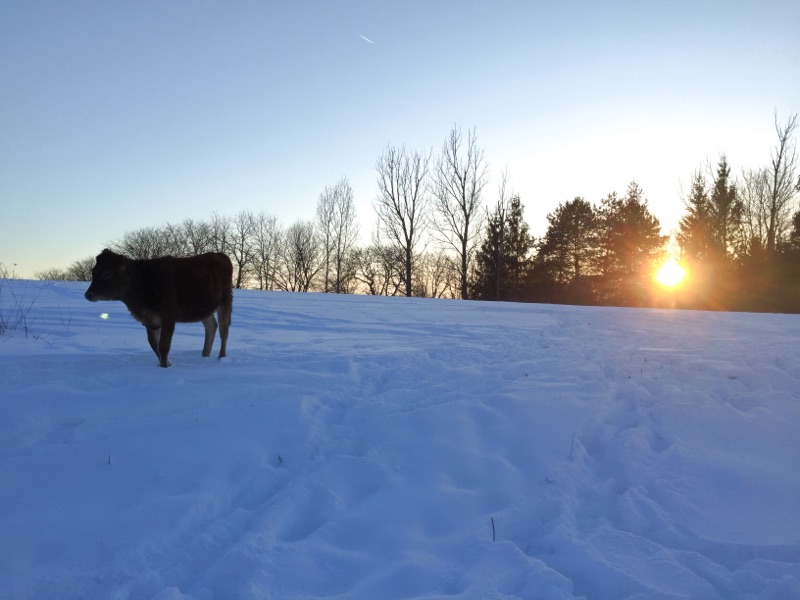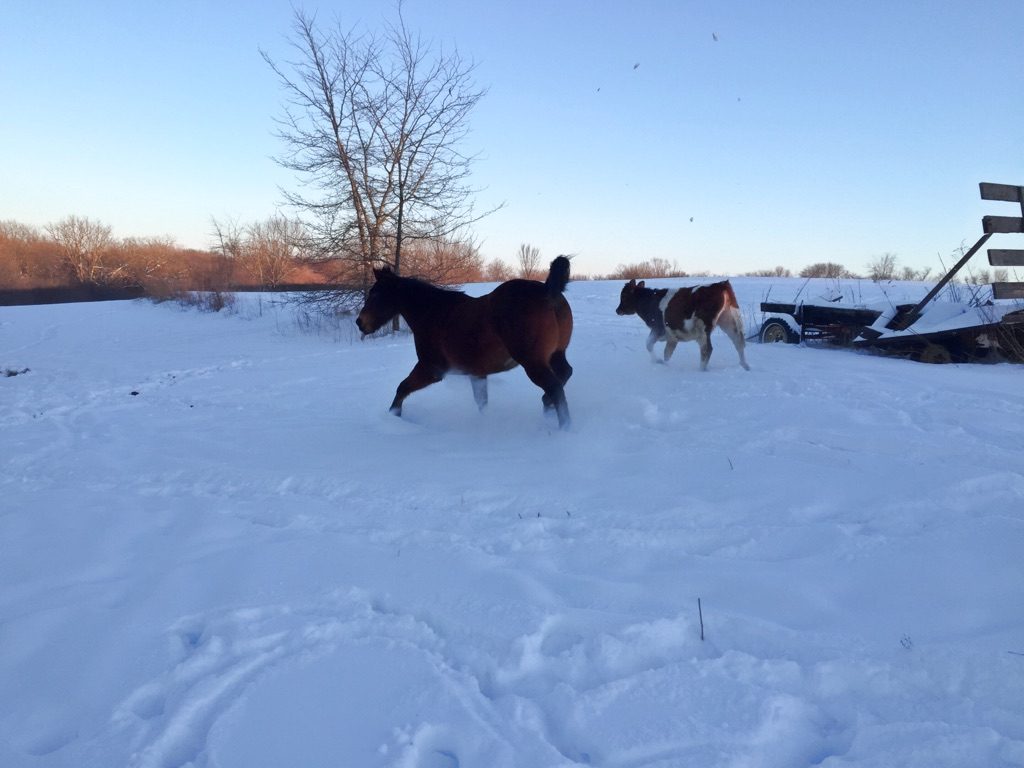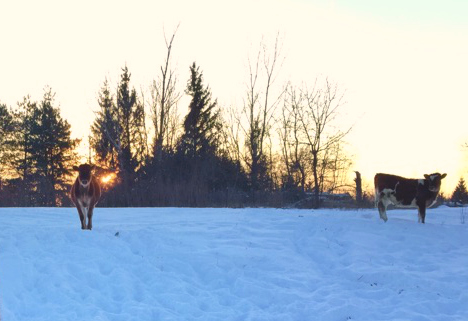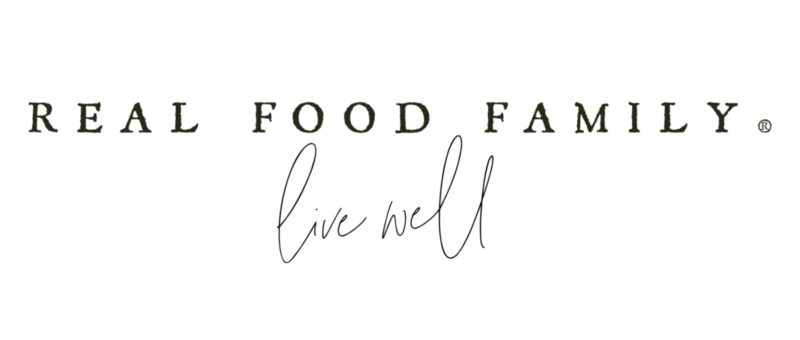 Though death is inevitable on a farm or homestead, it’s never easy. My mom always reminds me when I call her to let her know of another animal loss…”livestock is deadstock”.
Though death is inevitable on a farm or homestead, it’s never easy. My mom always reminds me when I call her to let her know of another animal loss…”livestock is deadstock”.
I was enjoying a lazy extra hour in bed and listened as my husband left the house to do the morning chores. I heard him tell the kids he was going to look for the cows.
He came into the room not long after he left, which was strange. I sensed something was wrong. I asked sarcastically if we lost the cows again. (Months ago mama and the two calves wandered off and we found them at a neighbor’s farm about a mile down the main road. I can only imagine driving by and seeing this little cow family moseying down the road!)
He looked at me with a whitened face and said with a deep level of seriousness, “Yes we have lost a cow.”
“What?! What do you mean?” I felt my heart sink and the blood completely leave my face.
“The mama cow. She’s dead.”
My shock and confusion led to endless questions to my calm yet dismayed husband. We spent the next couple hours in a complete daze. We texted farm friends and neighbors and searched the Internet for answers. I had just seen Mayzie, our mama cow, the day before. She was drinking water, grazing, letting her calves nurse…all normal behavior. I found some possible answers for her sudden death online but nothing made sense since she was symptom free and literally died overnight.
Our first reaction was absolute guilt. Even though we try to be as thorough and educated in our homesteading ventures, when a seemingly perfectly healthy cow dies suddenly you feel entirely inadequate and unworthy of raising animals.
We talked over everything. Were we feeding them wrong? We introduced a new winter supplemental food but it’s a basic cow feed formula. Was our hay bale bad? In the last month we had a couple cow and horse experts come over and confirm that our feeding routine was fine and the animals all looked good. But even if it was a food problem, death from nutritional issues usually takes a long time with plenty of symptoms. Nothing we were doing, or weren’t, could kill our cow overnight.
Was it the weather? Was a toxin or something in their water? What could it be?!
The vet finally arrived and headed out not far from the house where Mayzie lay. The snow had all been melting so he glanced down to watch his footing and avoid slipping. He stopped suddenly to pick up a small little twig with pine-like needles on it, then looked at us with revelation in his eyes.
“This is Japanese Yew. It’s extremely toxic to cows. Let’s go look at her.”
Nothing was wrong with her. She didn’t struggle on the ground as she died. There was no indication of a wound or pneumonia. She died very quickly, like from a heart attack…the kind of death that ingesting even a tiny amount of Japanese Yew will cause in only a couple hours.
In dismay I thought of how stupid this mistake was. We cut down this wretched plant- which is highly toxic not only to cattle and horses but dogs, cats, and humans- which was overgrown and invading our house door. With no idea of its danger, we threw the branches into a burn pile which is relatively close to where we feed the animals.
In the last six months I had two different local “experts” confirm that I shouldn’t worry about toxic plants in this area. I am very passionate about learning plant species and felt like I had exhausted my research of toxic plants in the Midwest since we are new to the region.
Japanese Yew never came up in conversations, field guides or online searches. It’s an extremely common landscaping plant all over this region- yet toxic enough to suddenly kill dogs, cats and children??
I don’t blame the folks that came to advise us on our property’s plants. They never saw the Yew plant and it probably didn’t cross their minds. Or possibly they didn’t know how toxic this plant is and how prevalent it is in landscaping.
Sadly this has happened to many farm animals. I found news reports of this plant killing tens of thousands of elk and wildlife because it was used to landscape a housing development close to the wild land. A neighbor told us that a few years ago they lost six cows overnight like we did because a well intentioned guy from in town brought lawn clippings of his Japanese Yew to their cattle herd to throw them a “treat”. Needless to say, I’m going to loathe this plant for the rest of my days and convince the owner of any garden store I see it in to stop selling it.
Losing Mayzie is an extremely frustrating loss. I had a personal connection with her since she was my first milk cow. I battled with her for a few weeks last summer as I figured out how to milk a cow. Many little memories were made in the six months we had her and we looked forward to many more years of her ruling the homestead. I had been planning ways to work on our relationship for the next couple months, preparing for a more successful season of milking.
These thoughts of “what could have been” bring on the most tears. This sweet cow was a good cow and had many years of life still to live, and life to give to our family. I feel like we absolutely failed her.
The loss of the investment of a healthy Jersey cow who’s calved twice and remained strong and healthy is also painful. She was to bring years of value to our homestead. Because of her toxic death and our inexperience in butchering a cow, we couldn’t harvest her meat.
 We have Mayzie’s heifer calf and her adopted steer calf. They were old enough to be weaned and learned how to be a cow from their devoted mother. It was heartbreaking, but they hung around their mother’s body for a while and bellowed for her from their barn overnight.
We have Mayzie’s heifer calf and her adopted steer calf. They were old enough to be weaned and learned how to be a cow from their devoted mother. It was heartbreaking, but they hung around their mother’s body for a while and bellowed for her from their barn overnight.
The vet assured us they would try to wait for her only a short time, then move on with life and forget her. How sad! But it is true. The calves are okay now and moving on. They are following Duke, the horse, around. It’s like they’re expecting him to take on the role of mother but he finds them quite irritating. It reminds me of the classic Dr. Seuss book, “Are You My Mother”.
I shared the story on Instagram and Facebook. I’m incredibly grateful for the outpouring of love and support from everyone who reads about Mayzie and her calves.
I now have a couple years to bond with her heifer calf , pray that she calves well like her mother, and prepare for our milking relationship. One small blessing is that we needed to eliminate some of the responsibilities in life lately with a new baby coming and our businesses requiring so much of our attention.
What did we do with her body?
We had to put on our big kid pants that day. We could bury or burn her body. The vet and our neighbors all agreed that the best thing to do is let nature have her by bringing her body to a back corner of our property, which we did.
I used to watch the bald eagles soar over the house and gaze at them in wonder. Now I know what they are heading toward and it’s not as wonderful. Doing this was the most sustainable option. Our wildlife is dealing with hunger during this extremely cold winter.
To avoid a total loss, we decided to collect her hide for leather. My husband hadn’t ever skinned this large of an animal before but took on the challenge. He did an impressive job, as he usually does with these things. We’re not sure if it was successful, though. Another painful loss.

Homesteading is not easy. Mistakes are made no matter how diligent you are to avoid them. (I could also tell you how my rooster got horrible frostbite when our temperatures dropped to twenty below. Another total failure. Or the hawk that got a chicken when both guardian dogs and the rooster were napping somewhere.)
There are romantic, dreamy moments that we get to experience sometimes. Those moments are usually posted on social media. But the majority of the time it is work, frustration, problems, expense, and every once in a while, unexpected death.
Is it worth it? In times like right now I seriously questions if it is. But I know that if I moved to town with close neighbors and homeowner’s association rules, I would be miserable and long for a homestead again. Homestead life, with it’s ups and downs, makes my life more real and authentic.
I’m grateful to God that it was just one animal and not all of them that consumed the plant and died. I’m grateful my children never decided to play “tea” with this plant or found the dogs or cats chewing on it. I’m grateful for the wisdom gained from this experience so it never will happen again.
I’m sad about losing Mayzie and thinking of her avoidable death will probably frustrate me forever.
Life moves on and we have to move on with it. God is good all the time and I know I can always trust His sovereign plan for my life. He is my source of peace that surpasses understanding.
…I have learned how to be content with whatever I have. I know how to live on almost nothing or with everything. I have learned the secret of living in every situation, whether it is with a full stomach or empty, with plenty or little. For I can do everything through Christ, who gives me strength. – Philippians 4:11-13

